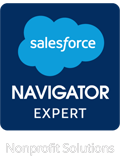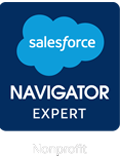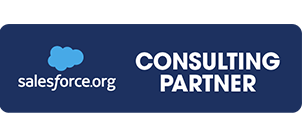Why Nonprofits Need to Invest in Technology
When my parents are trying to decide on a new purchase or are upgrading something they’ve had for years, they always come back to the same question, “Can you live with it?” They’ve used this rationale to keep riding a bike with a bent wheel and have lights in the kitchen that often require the use of a headlamp to see things.
Can you live with it?
Although often not to this extent, this general philosophy reminds me of some of the creative and scrappy nonprofits I’ve worked with over the years. For good reasons, organizations are focused on rolling out programs, raising funds, and thinking strategically about the future. When it comes to technology, facilities, or other investments, folks ask, “Can you live with it?” With a growing focus on outcome tracking, data driven innovations, and the need for reliable digital infrastructure, it’s time for organizations to make the investment in a new database or upgrade their current system.
Technology is becoming a major differentiator in the nonprofit sector. With increased competition for grants and demand for cohesive data, organizations that invest in technology will be better equipped to thrive in the future.
According to NTEN, “62% of nonprofits don’t fully communicate the impact of their programs. [...] just 11% of nonprofits say they manage digital resources in a “highly effective” way, while a report published by NTEN found that a mere 20% of nonprofits consider themselves leaders and innovators in tech adoption.”
In too many cases, organizations muddle through old technology or make do with their existing systems. After working in the nonprofit world for over 10 years, I saw firsthand how organizations were limited by outdated or sub-optimal technology. Not only does this trend lead to misuse of time and energy, but it also places constraints on the potential impact of the mission itself.
Slow tech adoption in the nonprofit sector
Common complaints from organizations in the push to adopt new technology includes a lack of framework for measuring and reporting, lack of staff resources, and incomplete impact data. These roadblocks can be significant impediments in reporting back to grantors and engaging with stakeholders.
With the increase in large-scale giving, transparency and accountability are more important than ever. Grantors expect nonprofits to communicate effectively and demonstrate impact backed by data - technology can help make this an easier task. Powerful data collection and analysis tools like Salesforce are more available and affordable than ever. With a partner like Idealist Consulting, your organization can adopt a seamless integration of these tools.
How to become a tech-savvy nonprofit
As grants become more focused on measurable outcomes, organizations able to leverage technology to prove their impact will have an edge. With the rapid evolution of tech, it can be hard to determine areas where your systems are actually working against you. Common pain points that may indicate a need for optimization or a new tech solution include:
Nonprofits have an opportunity to deploy all available tools to demonstrate their value. There have never been more ways for nonprofits to collect data, evaluate their approach, and put insights into action. Get in touch with a Salesforce expert and see what’s possible for your organization.
Consolidation is key
One of the biggest challenges nonprofits face is disjointed systems. When there is no centralization of data, it can be nearly impossible to gather complete and accurate data. With teams becoming siloed, you also risk a lack of consistency throughout the organization. This can ultimately lead to misalignment with donors and hurt the grantor relationship.
Using a cloud-based technology solution like Salesforce, organizations can store data in one central location where all teams have access to the same database. Built-in reporting mechanisms allow organizations to see real-time impact metrics and share this with grantors quickly and easily.
As the demand increases for nonprofits that can show data-driven impact, organizations that leverage technology will be the first to flourish. If you’re ready to find out how technology can elevate your nonprofit’s mission, get in touch with one of our experts.
















